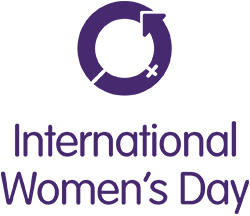Another March 8th has rolled around, and once again we’re celebrating International Women’s Day. It’s a time to celebrate women’s achievements and reflect on how we can contribute to a more gender-balanced world.
![]() Research over the past few years has shown that organizations with a significant number of women in leadership positions are outperforming those with less.
Research over the past few years has shown that organizations with a significant number of women in leadership positions are outperforming those with less.
For example, in its research, DDI found that organizations in the top 20 for financial performance have more than twice as many women leaders as organizations in the bottom 20.
“We do a lot of research and all the data is saying that the more women you have, the more financially profitable that your business actually is,” said Lynn Packham, Manager, Customer Excellence, DDI.
Why do Women add Value?
When companies create conditions that allow women to rise to the top and contribute fully, they are actually creating cultures that allow all employees to do their best work.
For example, the Peterson Institute for International Economics found that “companies with more female leadership contributed to less gender discrimination—leading to a more positive work environment and higher morale. Furthermore, the countries with the highest number of women in power had eleven times more paternity leave days than countries with the least, thus expanding the responsibility of childcare beyond women alone.”
Joe Carella, the assistant dean at the University of Arizona, Eller College of Management, has found that diverse companies become more creative. “We did our own analysis of Fortune 500 companies and we found that companies that have women in top management roles experience what we call ‘innovation intensity’ and produce more patents — by an average of 20 percent more than teams with male leaders.”
The key here is not to look at diversity alone as the solution. Diversity is about selecting people to play in your orchestra. Inclusion is ensuring that each instrument is heard.
Key Cultural Factors
In its 2018 report, When She Rises We All Rise, Accenture identified 14 factors that contribute to a culture of equality. These factors have been identified under 3 categories.
- Bold Leadership
- Gender diversity is a priority for management.
- A diversity target or goal is shared outside the organization.
- The organization clearly states gender pay-gap goals and ambitions.
- Comprehensive Action
- Progress has been made in attracting, retaining and progressing women
- The company has a women’s network
- The company’s women’s network is open to men
- Men are encouraged to take paternal leave
- An Empowering Environment
- Employees have never been asked to change their appearance to conform to company culture.
- Employees have the freedom to be creative and innovative.
- Virtual/remote working is widely available and is common practice.
- The organization provides training to keep its employees’ skills relevant.
- Employees can avoid overseas or long-distance travel via virtual meetings.
- Employees can work from home on a day when they have a personal commitment.
- Employees are comfortable reporting sex discrimination/sexual harassment incident(s) to the company.
 Celebrating International Women’s Day
Celebrating International Women’s Day
International Women’s Day is a great reason to have conversations in your workplace about how your culture can better support women. Mark the date: Friday, March 8th.
There are many different ways to celebrate such as launching unconscious bias training. Create an event or communication to celebrate the achievements of women in your organization or to celebrate the successes of women in your industry.
You can also look at some of your HR practices. Have you looked at your turnover rate from a diversity perspective? Is your female turnover higher than your male turnover? Do your job advertisements tend to attract male applicants and turn away female applicants? Run your ads through the Gender Decoder and see how the language in your postings rate.
Gloria Steinem, world-renowned feminist, journalist and activist once said “The story of women’s struggle for equality belongs to no single feminist nor to any one organization but to the collective efforts of all who care about human rights.”
 Need a conductor to help ensure that every instrument in your organization is being heard? Let’s chat.
Need a conductor to help ensure that every instrument in your organization is being heard? Let’s chat.


